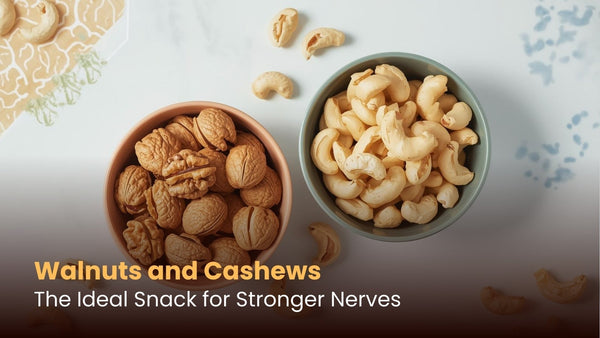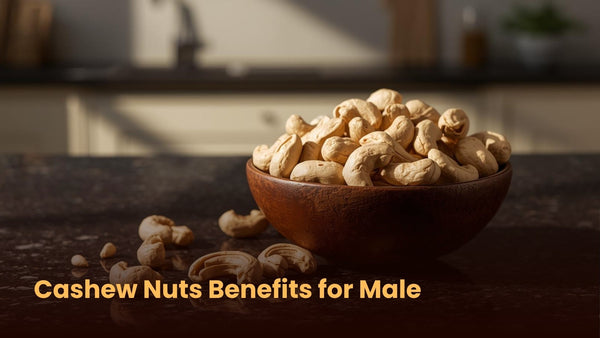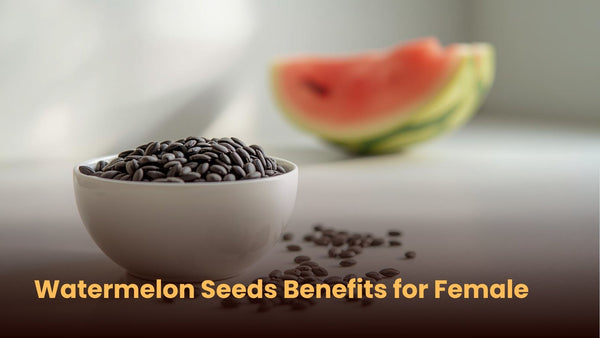Besides being delicious, hazelnuts are tiny, nutrient-dense powerhouses. Whether you bake with them, add them to your morning porridge, or snack on a handful during the day, hazelnuts are a tasty way to boost your health. But have you ever wondered what exactly is in a 100g portion? These nuts contain vital vitamins and minerals, heart-healthy fats, and much more than meets the eye. Which aspect is the best? The potential benefits of a small amount can prove substantial. To show the impact of a small portion, this post will break down the nutritional data for 100 grams of hazelnuts.
Table of Contents
Introduction
Nutrition Content of 100 g Hazelnuts
Health Notes about Hazelnuts
Tips to Include Hazelnuts to Your Diet
Ideal Quantity of Hazelnuts to Consume
Conclusion
Frequently Asked Questions
Nutrition Content of 100 g Hazelnuts
Energy Content
Hazelnuts provide 622–628 kcal per 100 grams, making them a high-energy food. The substantial amount of good fat in it makes it a high-calorie food. It corresponds to 2560–2689 kJ in kilojoules, which is a significant energy contribution in a compact container. A mere handful (about 30g) will provide nearly 186–189 kcal, making hazelnuts a powerful and practical energy source for daily snacking or meal enhancement. A tiny serving size of them offers both nourishment and satiety due to their high calorie density.
Macronutrients
With roughly 61–70 grams per 100 g, hazelnuts are very rich in natural lipids. The majority of these fats are monounsaturated fats, such as oleic acid, which are known to have heart-healthy properties. Although the omega-3 concentration is low in comparison to other nuts, polyunsaturated fats, including some omega-3 ALA, promote overall well-being. Despite their low saturated fat level (2.7 to 4.5 g/100 g), hazelnuts are a heart-healthy option.
The moderate protein level (14.8–15 g per 100 g) aids with satiety and muscle regeneration. In contrast, hazelnuts have a comparatively modest net carbohydrate content (7 g per 100 g), with dietary fibre accounting for a large portion of their carbohydrate composition (9.7 g). Accordingly, hazelnuts are satisfying and good for the digestive system. Because hazelnuts have a naturally modest sugar content (4.3 g), they offer energy gradually without causing blood sugar levels to surge.
Vitamins
A notable source of vitamin E (15–16 mg per 100g), a crucial antioxidant that helps shield cells from harm and promotes healthy skin, hazelnuts provide almost the full daily need. They also contain several B vitamins necessary for brain health and energy metabolism, including folate (113 µg), thiamin (0.4 mg), riboflavin (0.2 mg), niacin (5.6 mg eq), and vitamin B6 (up to 0.6 mg). Although they are only found in trace amounts, vitamin K and vitamin C (2–3 mg) contribute to the total dietary richness of hazelnuts and enhance immunity and general health.
Minerals
Hazelnuts include many vital nutrients that help maintain bone, blood, and metabolic functions. Calcium helps maintain healthy bones and teeth; its concentration ranges from 86 to 114 mg per 100 g. Compared to many other nuts, they have a higher iron concentration (3.2 to 4.7 mg), which helps to create healthy red blood cells. Kalium (680 mg) promotes heart health and fluid balance, while magnesium (160–163 mg) helps sustain normal neuron and muscle function.
Exceptionally high in copper (1.5–1.73 mg) and manganese (3.5–6.18 mg), hazelnuts are essential for enzyme systems and antioxidant defence. Traces of selenium enhance antioxidant activity, while zinc (2.2–2.45 mg) supports immunological function. Hazelnuts are a nutrient-dense option that can assist numerous elements of your health because of their remarkable mineral composition.
Additional Nutrients
Arginine, a non-essential amino acid crucial for blood vessel function and muscle growth, is abundant in hazelnuts. With 2.2 grams per 100 g, arginine promotes the synthesis of nitric oxide, which lowers blood pressure and relaxes blood vessels.
One hundred grams contains about 122 milligrams of phytosterols, or plant sterols. Sterols contribute to heart health by reducing LDL cholesterol.
Hazelnuts contain a substantial quantity of polyphenols, about 835 mg per 100 g, which appear in the skin. These antioxidants promote general cardiovascular and cellular health by reducing inflammation and oxidative stress.
Health Notes about Hazelnuts
- Heart-healthy monounsaturated fats, which help reduce cholesterol and safeguard the heart, are plentiful in hazelnuts. Hazelnuts are a good snack for your heart because they include beneficial fats, particularly oleic acid, which may raise HDL cholesterol and decrease LDL. Amongst its various antioxidants, vitamin E and polyphenols contribute extra protection against inflammation and cell damage. The fibre in hazelnuts helps control hunger and support digestive health, making them an excellent choice for weight loss and recovery. Just keep serving moderate amounts to enjoy their advantages without going crazy with calories.
- Hazelnuts provide significant health benefits due to their high content of antioxidants, including vitamin E and polyphenols. Vitamin E serves as a potent protector against the harm that daily stress does to cells. But polyphenols offer additional support in reducing inflammation and promoting the body's natural healing process. Frequent hazelnut consumption can boost general wellness, preserve the health of your skin, and protect your cells—all of which are crucial if you want to lead an active, balanced lifestyle. These antioxidants may even contribute to healthy aging and recovery from exercise. A tiny amount has significant protective effects.
- You can lower your cholesterol and improve your heart health by eating hazelnuts. Their abundance of antioxidants and beneficial fats can help reduce "bad" LDL cholesterol while maintaining or even increasing "good" HDL cholesterol. Regular hazelnut consumption has been shown in several studies to improve key heart health indicators, including decreased LDL oxidation and improved endothelial (artery) function, both of which are vital in preventing heart disease and clogged arteries. Hazelnuts' phenolic components and vitamin E reduce inflammation and oxidative stress, which lowers the risk of oxidation, which can harm your arteries. When consumed in moderation, all of this translates into genuine cardiac protection that doesn't negatively impact your weight.
- The fibre level of hazelnuts is exceptional, making them an excellent snack for intestinal health. This fibre keeps your digestive tract functioning properly and helps you avoid frequent problems like constipation. It also supports a healthy microbiome and enhances digestion by providing nourishment for the good bacteria in your stomach. Additionally, fibre slows down your body's absorption of sweets, resulting in more consistent energy levels and longer feelings of fullness. If you want to improve your digestive health, control your weight, or feel better, incorporating a small handful of hazelnuts into your daily routine is an easy (and delicious) method to help your gut.
Tips to Include Hazelnuts in Your Diet
- Add just a handful (approximately 28g) of roasted or raw hazelnuts for a mid-meal snack. If you're managing your calorie intake or following Weight Watchers, measuring out your portion will help you control it.
- To add crunch, flavour, and nutrients to your smoothie bowls, yogurt, or porridge in the morning, chop some hazelnuts and sprinkle them on top.
- Add some texture and healthy fats to your salads by tossing toasted hazelnuts with fruit, cheese, and leafy greens.
- To add fibre, protein, and long-lasting energy, blend hazelnuts into your homemade granola or energy bars.
- Try using hazelnut spreads (such as all-natural hazelnut butter) on toast, rice cakes, or apple slices in place of peanut butter; just be mindful of the additional sugars and oils.
- Add chopped hazelnuts for a nutty taste and nutritional boost to baked products like muffins, banana bread, or biscotti.
- Use hazelnuts as a crispy covering for cooked poultry or fish, or toss them with roasted vegetables (such as green beans or carrots).
- For a distinctive flavour variation, try incorporating hazelnuts into homemade pesto or dips.
- For a nutty and dairy-free alternative, use hazelnut milk in your smoothies, coffee, and cereal.
- Keep in mind that a little goes a long way in terms of taste, texture, and nutrition, so limit your intake to a little portion to enjoy all the benefits without going overboard with calories.
Ideal Quantity of Hazelnuts to Consume
A little handful, or approximately 28 grams (1 ounce), or about 20 hazelnuts, is the perfect amount to eat each day. Without adding too many calories, this meal provides you with a good boost of fibre, nutrients, and healthy fats. This measured amount fits into a balanced snack routine and won't break your budget if you're careful of portion control or are on a weight watchers plan. A small daily dose of hazelnuts allows you to enjoy all the benefits, such as heart-healthy fats and antioxidants, without going overboard, as too many can quickly build up in calories.
Conclusion
Even in small amounts, hazelnuts are good for you as they are healthy and nutrient-dense. Only a handful provide heart-healthy lipids, antioxidants, and vitamin E in abundance, fibre for healthy digestion, and a variety of vital minerals—all naturally low in sugar. For anyone trying to eat healthier or maintain their weight, they're a great snack because of their rich, buttery flavour, especially if you're on Weight Watchers or trying to watch your portion sizes. Additionally, their high fibre content is beneficial for digestive health. Thus, consuming a small amount of hazelnuts daily is a delicious way to improve your nutrition and general health.
Frequently Asked Questions
What are the calories in 100g of hazelnuts?
With roughly 622–628 calories per 100 grams, hazelnuts are a high-energy snack. Because of this, a tiny handful is nourishing and satisfying. A 100g of nuts should provide 628 calories, but the exact number may vary slightly depending on whether they are roasted or raw.
What is the fat content of hazelnuts?
With 56–61 grams of fat per 100 grams, hazelnuts are naturally high in good fats. This fat is heart-healthy monounsaturated fat. Therefore, keep in mind that while hazelnuts are high in energy, their fulfilling and nourishing qualities are due to their healthy fat content.
How much protein do hazelnuts provide?
Hazelnuts are a good plant-based protein source for dishes or snacks because they contain 14.8–15 grams of protein per 100 grams. Even while hazelnuts don't have as much protein as certain legumes, they nevertheless provide a good protein boost, especially for vegetarians or anyone who consumes more plant-based foods.
Are hazelnuts a good source of vitamins?
Hazelnuts do contain a lot of vitamins, yes! Along with B vitamins, including folate, vitamin B6, and thiamin, they are particularly high in vitamin E. Additionally, you will receive lower levels of vitamin K and C. Thus, a handful of hazelnuts can significantly increase your intake of vitamins.
What minerals are present in hazelnuts?
Hazelnuts are a rich source of nutrients, including manganese, copper, and magnesium. In lower proportions, they also supply calcium, iron, phosphorus, potassium, zinc, and selenium. Hazelnuts are a wholesome, mineral-rich snack to incorporate into your daily routine because of their remarkable mineral combination, which supports strong bones, nerves, immunity, and energy levels.
Are hazelnuts high in fibre?
Yes, hazelnuts are rich in fibre. With about 3 grams of fibre per 1-ounce serving (about 28g), you can meet about 11% of your daily fibre needs. Hazelnuts help keep your gut full, extend sensations of fullness, and support a healthy digestive system with every crunchy handful.
Do hazelnuts have health benefits?
Hazelnuts do have several health advantages. They are a great source of heart-healthy fats, fibre, vitamin E, and antioxidants that can help lower cholesterol, protect cells from harm, reduce inflammation, and improve digestion. A balanced diet that includes hazelnuts can improve general health.
Are there any allergy concerns?
As with other tree nuts, hazelnuts can trigger allergic reactions. Allergies to nuts can cause symptoms that range from minor hives or itching to more significant problems, including breathing difficulties or swelling. If you are known to have a nut allergy or sensitivity, always consult your physician before consuming hazelnuts.
How can hazelnuts be consumed?
You may eat hazelnuts raw or roasted as a snack, add them to muesli or breakfast cereals, and bake them into breads, cakes, and cookies. Additionally, you can find them in pastries, pralines, and chocolate spreads. They make a crisp salad or pasta topper, or are good ground into nut butter.
Do hazelnuts contain any anti-nutrients?
Anti-nutrients such as lectins, tannins, oxalates, and phytic acid are indeed present in hazelnuts. Some minerals, such as iron and zinc, may be less absorbed as a result of these. Their health advantages, however, greatly exceed any slight effects from these organic substances, and the amounts are not abnormally high.











Share Your Thoughts